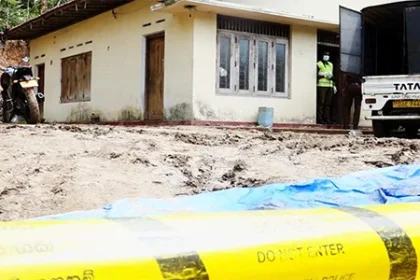Over a half a century ago, when late Venerable Professor Kotagama Wachissara Thero taught us Buddha Dhamma at Ananda, he explained that the Noble Eightfold Path is meant to develop three qualities: wisdom (panna), ethical conduct (sila), and mental harmony (samadhi). Venerable Walpola Rahula thero wrote the same in his must-read book, What the Buddha Taught (1959), where he elaborates what is meant by each in simpler terms. In recent times, we hear Buddhists talk about generosity (dana), conduct (sila), and mindfulness (bhawana) instead. What happened to wisdom? Regardless of the religion, it should be a real concern for all Sri Lankans, as lack of wisdom means only one thing, and we all have fallen victim.
The dictionary defines wisdom as the quality of having experience, knowledge, and good judgment; the quality of being wise. According to Buddhist teaching, Right Understanding (samma ditthi), and Right Thought (samma sankappa) count as wisdom; even though direct translations of Pali words have limitations, there is concordance with the dictionary definition. Venerable Rahula explains the importance of wisdom in his book as follows:
“According to Buddhism for a human to be perfect there are two qualities they should develop equally: compassion (karuna) on one side, and wisdom (panna) on the other. Here compassion represents love, charity, kindness, tolerance and such noble qualities on the emotional side, or qualities of the heart, while wisdom would stand for the intellectual side or the qualities of the mind. If one develops only the emotional, neglecting the intellectual, one may become a good-hearted fool, while to develop only the intellectual side neglecting the emotional may turn one into a hard-hearted intellect without feeling for others…”
An honest look at the prevailing socio, economic, and religious degradation of the country shows that we have followed the two extremes, turning our society into a bunch of selfish fools. It hurts, but can we explain the current situation in any other way? If we had acted wiselyas a nation, would we have ended up in this state?
How and when wisdom fell off our nation’s collective curriculum is a question we must ask. Let us hope that the authorities are taking it seriously when they formulate the educational reforms. However, there is a side to it that is beyond their purview, and that is how it should be. I am referring to the role the country’s major religion has played or neglected in this respect. When did wisdom get deemphasised, by whom, for what reason?
The early settlers of Sri Lanka were presumed to have practised the worship of various spirits and deities. Based on the references in Sinhala chronicles, Brahminism existed before and after Buddhism was introduced. During various times, there had been rulers who adhered to Hindu and Mahayana traditions. As a result, worship of deities, spirits, and ancestors has been an integral part of our culture. Recorded history tells us that at one point, the country did not have enough Buddhist monks to perform upasampada, the process of promoting a novice monk to a fully ordained status. Before the Saranankara period, there had been quasi monks who had not been admitted to the order – Ganninanses but lived in the temples and performed rituals. They were not committed to studying Dhamma and were engaged in various trades and focused on building wealth for the family (de Silva 1952).
Due to this varied and lasting impact, by the time Buddhist revival started in the nineteenth century, rituals, beliefs, and myths had become an integral part of Buddhist practice, and the knowledge of Dhamma had weakened or lost (Rahula 1956, Marasinghe 1974, Gombrich 1988, 1997, Obeyesekere 2018). The agrarian population did not have the wherewithal or the interest in understanding the teachings of the Buddha. They wanted an easy path to salvation, some power to help overcome an illness, protect crops from pests or elements; just as we seek the help of spirits and deities to protect property, get through an examination, or succeed in commerce. There was nobody to tell them the meaning of Dhammapada verse number 160: “One, indeed, is one’s own refuge. Who else could be one’s own refuge?” Not that they cared even if someone did. There was nobody to enlighten them that Buddha rejected these practices and beliefs. Those who could educate them had nothing to gain, but a lot to lose by educating the lot. The revival movement also did not do much to change the situation as the Buddhist teaching was focused on poems full of mysticism and memorising suttas that were supposed to be protective blessings. Little they knew that the protection comes from knowing the meaning, and acting accordingly, but not by reciting.
In terms of Buddhist practices, we are still back in the pre-Saranankara period. Neither side has changed. If anything, we have taken it to a much higher level and sophistication. We have utilised the latest technology and business strategies to barter our hard-earned meager resources for a better next life, at the expense of wellbeing here and now. Instead of the path to salvation, we wish to hear fairy tales about saviours to come and worlds with eternal merriment.
We have been venerating the bodhi tree and stupa as objects connected to Buddha for centuries. But who invented the current practice of praying and offering material things to a Bodhi tree to cure an illness or pass an examination? Or, similarly, offering robes and ‘atapirikara’ to a ‘stupa?’ What use is an alms bowl, three robes, a belt (bandha patiya), a razor (deli pihiya), a water strainer (perahankadaya), and a needle and thread kit to bodhi trees or stupas? Not just one, but hundreds of them! Have we taken a moment to think who really benefits from trading those things? Do we see the connection between old Brahminic practice of prayer and sacrifice to their gods and our current practices?
Annual Katina ceremony is another practice currently being used to exploit innocent devotees. Back when everybody was materially poor, it must have been quite a task to offer a new robe to the village temple. Nowadays, with lavish lifestyles complete with mansions, luxury transportation, property, and in some cases with elephants etc., there cannot be a scarcity of robes. Especially when they can open a never touched atapirikara offered to the bodhi tree and stupa, if a robe is needed, instead of repeated recycling by the thousands for profit. A fast-spreading new practice that contributes to social degradation takes this to the next level. Devotees are scrambling to keep the katina robe under their roof for a hefty ‘donation.’ Not only that, when the robe is kept for a night, the house must be decorated and throngs of devotees visiting must be fed and entertained. Every household is ‘expected’ to participate in this ‘wholesome activity;’ If one cannot take part, they become outcasts. A guilty consciousness is also planted in that they will not reach liberation. There is another addition, all the statues in the local temple, including those fibreglass replicas sold by the dozen, must be offered lavish gilan pasa consisting of eight different kinds, every night. The gallons of disposed drinks the next day turn the temple grounds into a toxic dump.
Do we have the wisdom to stop for a moment and think who benefits from these activities? What part of these activities comes under compassion (karuna) that venerable Rahula noted as an essential quality? If we do them hoping for good karma, a better rebirth, and eventual liberation, that is because we were never taught what those concepts mean as Buddha explained them. Do we ever think that feeding a hungry person, helping a needy student, or a sick person instead, is a compassionate activity with better social outcomes than these rituals? No, those who benefit from the said activities convince us otherwise. Sadly, those who try to explain that they do not serve any purpose, here now or hereafter, other than enriching corrupt businessmen, clad in suits or not, are treated as traitors, hell bent on destroying our culture and religion; people with bad karma destined for hell.
These practices are started by well-to-do in towns, but when they spread to villages, they try emulating with disastrous results. One may say that we must continue the tradition; that is fine, but should we use it to exploit faithfulness? If there is a need for a robe, or even a food processor or an air conditioner at the temple, those who can afford should provide them; but is there a need to waste time and money glorifying it under misguided expectations? Use the opportunity to intimidate or make the less fortunate feel guilty?
Most importantly, do we realise that these practices contribute to increasing the gap between have and have not? If someone who is on a limited income is compelled to spend a sizable portion of their income on these so-called charities that enrich the richer, instead of food, medicine, or child’s education, what good does that do to society? Recently, someone complained to this writer that the biggest threat to Buddhism comes from other religions that lure the poor with material goods. That is a fact. If your institution of worship is causing unwanted financial hardship, why not go to a place where they provide some relief? Let us think seriously, forget material benefits, do the temples provide proper guidance for living a happy life here, let alone spiritual liberation, other than making us addicted to rituals and feeling guilty if not? The hard-hearted intellects that venerable Rahula referred to may call these practices selabbatha paramasa; their way of saying, in code, the rest of us are good-hearted fools.
This is the tragedy: we Sri Lankans have access to a treasure trove of knowledge on nature that is far ahead of modern science, especially in analysing human nature. We remain committed to safeguarding that information at any cost. But we have completely neglected the need to convert that information into wisdom for the benefit of the individual, society, and the world, going against the wishes of the creator of that knowledge. It is that lack of wisdom and compassion at all levels that has created this selfish broken society. If the gatekeepers deliberately prevent the public from becoming wise, the people will have to seek alternatives; Just as they got rid of the corrupt political culture. Rational thinking is not limited to religious aspects, but it shapes one’s worldview. That is the only way to stop being victims of corruption of any nature, and stop being good-hearted selfish fools. But do we have the wisdom to do so? Aren’t we caught in a vicious cycle?
by Geewananda
Gunawardana, Ph.D.





